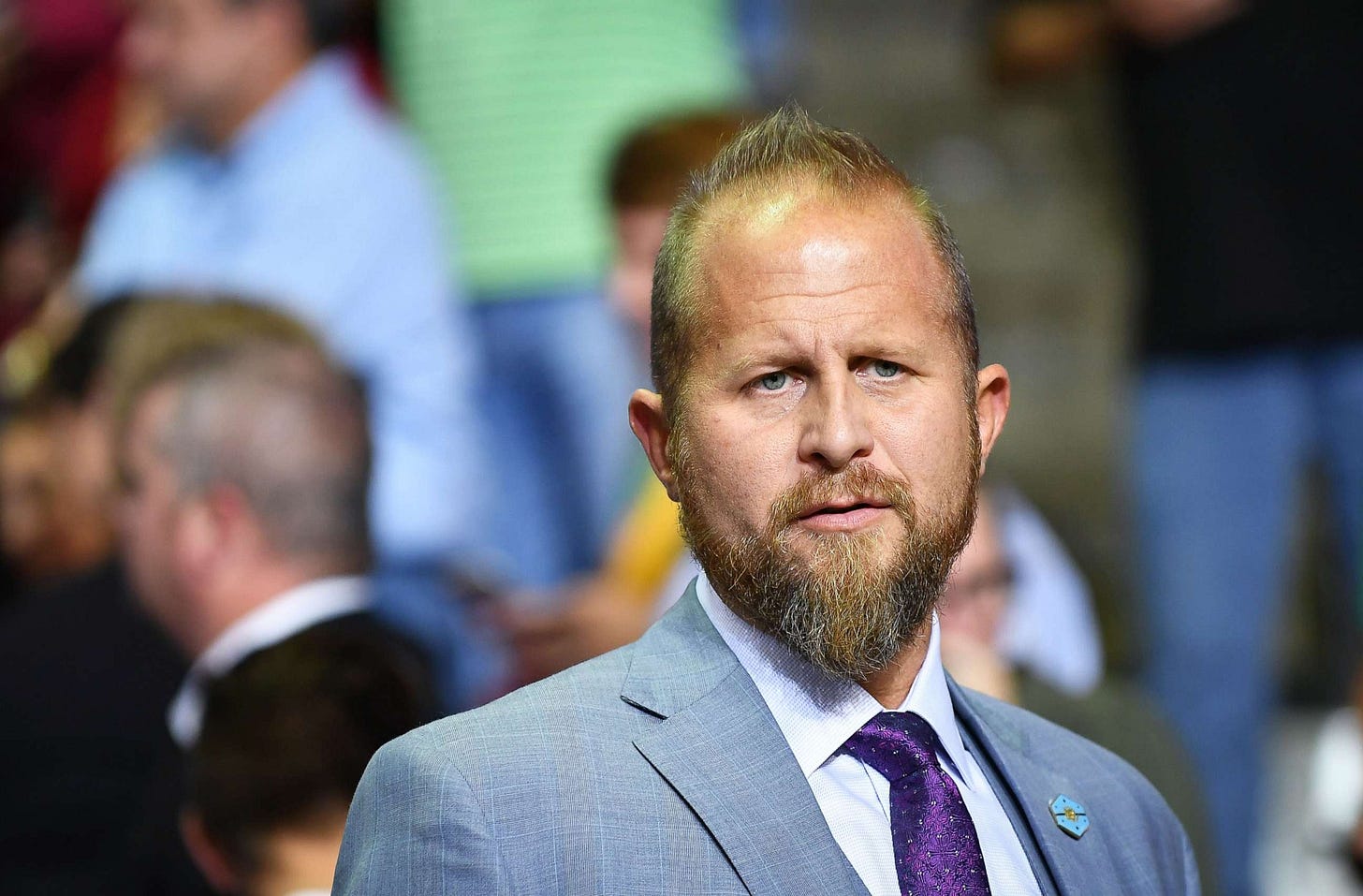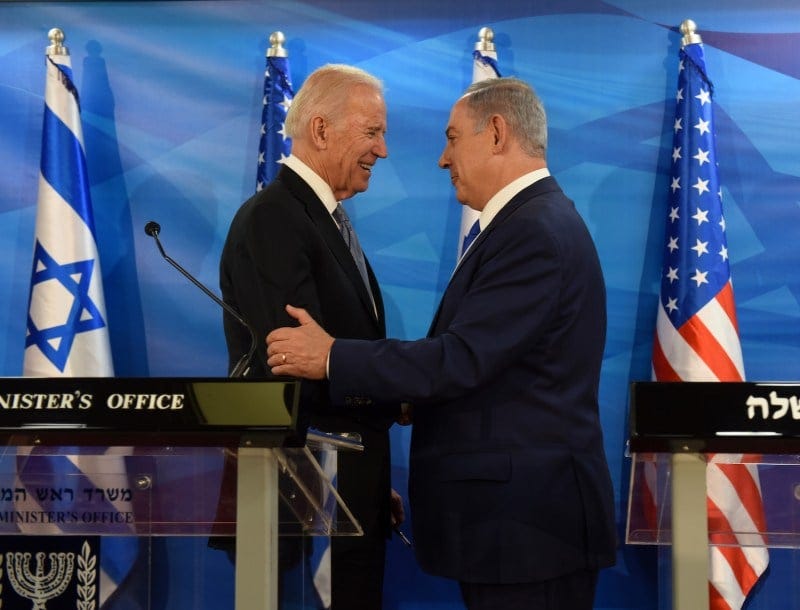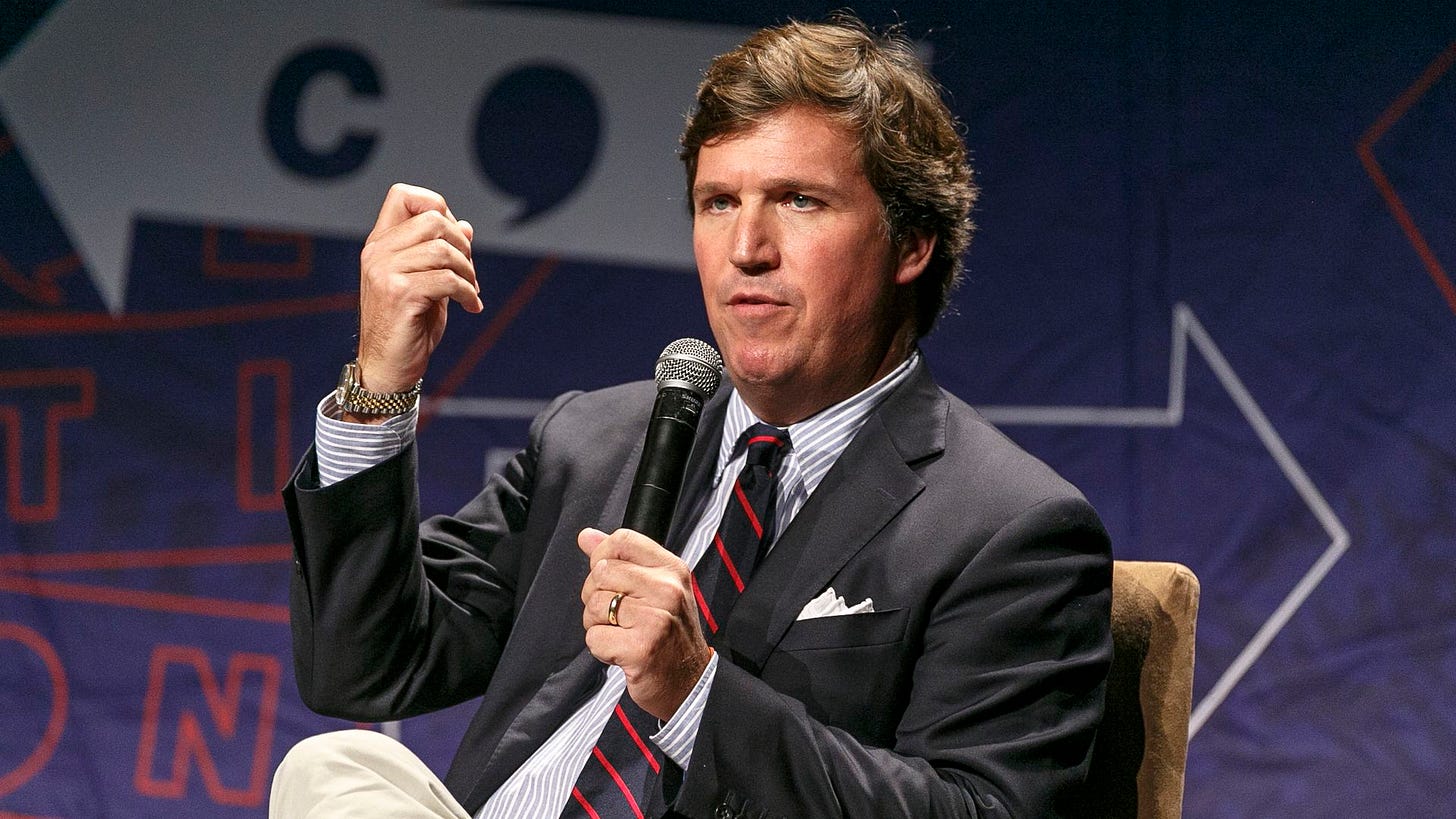Israel Is Marketing Itself to US Evangelicals
Can targeted ad campaigns reverse public perception of the Gaza war?
From the Editor:
We’ve been listening. You’re feeling tired and overwhelmed by the amount of news and content you’re presented with every day. You want to spend less time on a screen and more time doing what you love. The Preamble is evolving to meet your needs, and we’ll soon be publishing one deep, reader-guided digital magazine each week. Become a paid subscriber now to help decide what we cover and sustain independent content that meets the moment. Powered by our readers, not backed by billionaires.
Click here to take 20% off your annual membership
Read more about our new magazine here, and paid subscribers: see the important message at the end of this article!
—Sharon McMahon, Founder
Israel Is Marketing Itself to US Evangelicals
In September, standing beside US Secretary of State Marco Rubio at the Western Wall, one of Israel’s holiest sites, Prime Minister Benjamin Netanyahu declared the US–Israeli alliance “as strong and as durable as the stones… we just touched.”

The data tells a different story.
Support for Israel has cratered to levels not seen in a quarter century. More than half of Americans now view Israel unfavorably — up from 42% just three years ago, according to Pew. Polling earlier this year by the Chicago Council on Global Affairs, which has tracked these attitudes since 1978, shows Israel at its lowest point ever, with 61% of Americans saying the country hurts rather than helps Middle East stability. For the first time since The New York Times started asking in 1998, more American voters said last month that they sympathized with Palestinians (35%) than with Israelis (34%).
Netanyahu can read the polls (which we’ll consider in more detail below). That’s why his government is bankrolling a multimillion-dollar influence campaign aimed at American Christians.
An evangelical emergency
Last month, a newly formed company called Show Faith by Works registered with the Justice Department as a foreign agent. The Israeli foreign ministry hired the firm to execute what the campaign materials describe as “the largest Christian Church Geofencing Campaign in US history.” (“Geofencing” means creating location-based marketing for internet users.)
The budget: $4.1 million over five months, according to documents filed under the Foreign Agents Registration Act (FARA). The money flows through Havas Media, the same global advertising giant coordinating Israel’s other US influence operations — including a $1.5 million monthly contract with former Trump strategist Brad Parscale for AI-driven social media.
A slick slide deck attached to the FARA filing lays out the proposed campaign in detail. Show Faith by Works plans to “geofence” 25,000 churches across California, Nevada, Arizona, and Colorado, delivering what the filing explicitly calls “pro-Israel and anti-Palestinian” messaging to worshippers’ phones as they attend Sunday services. The campaign will track people who enter these zones and continue serving them ads long after they leave.
The operation includes hiring staff from churches and seminaries, recruiting social media influencers, sponsoring Christian podcasts, and producing television-style commercials. One slide lists potential celebrity spokespeople: actor Chris Pratt, Tim Tebow, Stephen Curry, Rick Warren, and others.
The firm will deploy a mobile “October 7th Experience” — a custom-built trailer with virtual reality headsets, wall-length mounted TVs, and interactive exhibits, to be planned by professional Hollywood set designers. The trailer will tour church parking lots and Christian campuses; the intent is to “book different churches each Sunday” and “different colleges each weekday,” according to campaign materials.
One section of the slide presentation discusses targeting “Black churches.” The FARA documents also discuss plans for a recording studio where pastors will produce video messages in multiple languages — English, Spanish, Chinese, Vietnamese, Russian, and possibly Japanese and Korean. “Pastoral Resource Packages” are to be mailed to every church in the target areas, complete with maps of biblical sites in Israel, information on booking church trips to the Holy Land, and talking points for “debunking pro-Palestinian popular arguments.”
The talking points are explicit. They say that “there was never a state of Palestine at any time in History.” Workers on the campaign are told to “highlight that Palestinian and Iranian goals are not land-focused, but genocidal,” and to “educate Christians that Palestinians shelter terrorists, built the tunnels for Hamas, hide weapons in their schools and hospitals, and joined in on the attacks on October 7th.”
Israel is pouring resources into this campaign because evangelicals were supposed to be an unshakable base of support. That support now shows dangerous cracks.
Between 2018 and 2021, the share of evangelicals under 30 who backed Israelis over Palestinians plunged from 68% to 34%, according to a University of North Carolina at Pembroke poll. That shift has endured and likely deepened during the Gaza war.
Just weeks before Show Faith by Works registered as a foreign agent, slain activist Charlie Kirk — perhaps the most prominent young evangelical voice for Israel — warned Netanyahu in a widely circulated memo that Israel faced a “5-alarm fire” over eroding support among young conservatives.
The polling disaster
But the evangelical campaign can’t solve Israel’s larger problem: support is collapsing across the political spectrum.
Among Americans aged 18 to 34, just 9% approve of how Israel prosecuted the war, compared with 49% among those 55 and older, according to a Brookings Institution study. Nearly seven in ten voters under 30 oppose sending additional military aid to Israel, a New York Times/Siena poll found in September.
Shibley Telhami, who has long studied the Israeli–Palestinian conflict at the University of Maryland, calls this the “Gaza generation,” similar to those who came of age during Vietnam or Pearl Harbor. “There’s this growing sense among people that what they’re witnessing is genocide in real time, amplified by new media, which we didn’t have in Vietnam,” he said. “It’s a new generation where Israel is seen as a villain. And I don’t think that’s likely to go away.”
The Democratic shift has been seismic. In 2022, Democrats split roughly evenly — 40% favoring Israel, 38% favoring Palestinians, according to Gallup. Today, Democrats side with Palestinians over Israelis by more than four to one: 54% to 13%, per the New York Times/Siena poll.
Almost 60% of Democrats believe Israel is intentionally killing civilians. More than 80% say Israel should end its military campaign even if it has not achieved its war aims, the poll found. And last July, for the first time in American history, a majority of Democratic senators voted to block arms sales to Israel.
But support for Israel is cracking on the right, too, especially among young conservatives.
Among young Republicans aged 18 to 49, half now hold unfavorable views of Israel — up from 35% in 2022, Pew found. (Among older Republicans, those numbers have barely moved.)
Twenty-one House Republicans voted against aid to Israel last year. Prominent voices on the right like Tucker Carlson openly worry that Israel might drag America into another Middle Eastern war.
Curtis Mills, executive director of the magazine The American Conservative, believes Trump’s presidency may represent “the last baby boomer, conservative, extremely Zionist-inclined administration.”
“The US has been involved in foreign policy adventures at the behest of the Israeli cause for decades, and it hasn’t worked for the United States — it’s worked for Benjamin Netanyahu,” Mills said.
The catastrophic polls were all conducted before President Trump announced his peace plan, before hostages started coming home, before the first phase of ending the war began. The war shaped these opinions. Can ending it start to reshape them back?
Dahlia Scheindlin, an Israeli pollster, believes that “just stopping the slaughter will allow some people to go back to their comfort zone of being supportive.” But Mort Klein, who leads the Zionist Organization of America, isn’t convinced. “It’s become Jew-hatred,” he said. “I don’t know how that is resolved.”
What’s at stake
For Israel, no strategic mistake could be more costly than losing America. The evangelical influence operation reveals both how seriously Israel takes the problem and how little it understands what’s driving it.
Netanyahu’s government seems to believe that if it can just get the messaging right, American support will return. But the shift in opinion wasn’t driven by propaganda — it was driven by the reality of the war, broadcast in real time. You can’t market your way out of a crisis that people watched happen for two years.
The war also made clear how dependent Israel has become on American support — not just for weapons, but for diplomatic cover, intelligence sharing, and protection in international forums. Netanyahu recently described Israel as a “super-Sparta,” ready to stand alone if necessary. That’s fantasy.
Telhami says Israel now has to treat the turning of US public opinion against it as an ”existential” threat. “The battle in America for Israel is perceived as part of the battle for Israel itself,” he said.
The next few years will determine whether Israel seizes Trump’s opening or continues down a path that ends with a decisive loss of American support. Regional peace could reset American attitudes. But public opinion, once it moves, doesn’t reverse easily. The Americans who spent two years watching Gaza won’t forget simply because their pastor got a text.











"The talking points are explicit. They say that “there was never a state of Palestine at any time in History.” Workers on the campaign are told to “highlight that Palestinian and Iranian goals are not land-focused, but genocidal,” and to “educate Christians that Palestinians shelter terrorists, built the tunnels for Hamas, hide weapons in their schools and hospitals, and joined in on the attacks on October 7th.”
I take issue with these "talking points", as if each statement is not true. Which ones are NOT true? I'm no fan of Israels present government just as MOST Israelis are not a fan of the far right gov. either as they have protested in the streets continuously long before Oct 7th. I am not religious in any sense of the word at all but I am interested in getting the truth out when it comes to Oct 7th (before and after).
The TRUTH is what matters and everything in your "talking points" is true. I have studied Middle East history extensively for decades. Why should people in churches, colleges, or otherwise NOT be told the truth?
As an American non-Jewish, progressive ,atheist and zionist (disgusted by the pro-Palestinian propaganda flooding the streets with LIES minutes after the Oct. massacre ) I hope the effort described is successful against the preposterous propaganda we saw non stop in America.
Their desire to change public opinion makes me concerned that they don’t plan to hold to the cease fire.